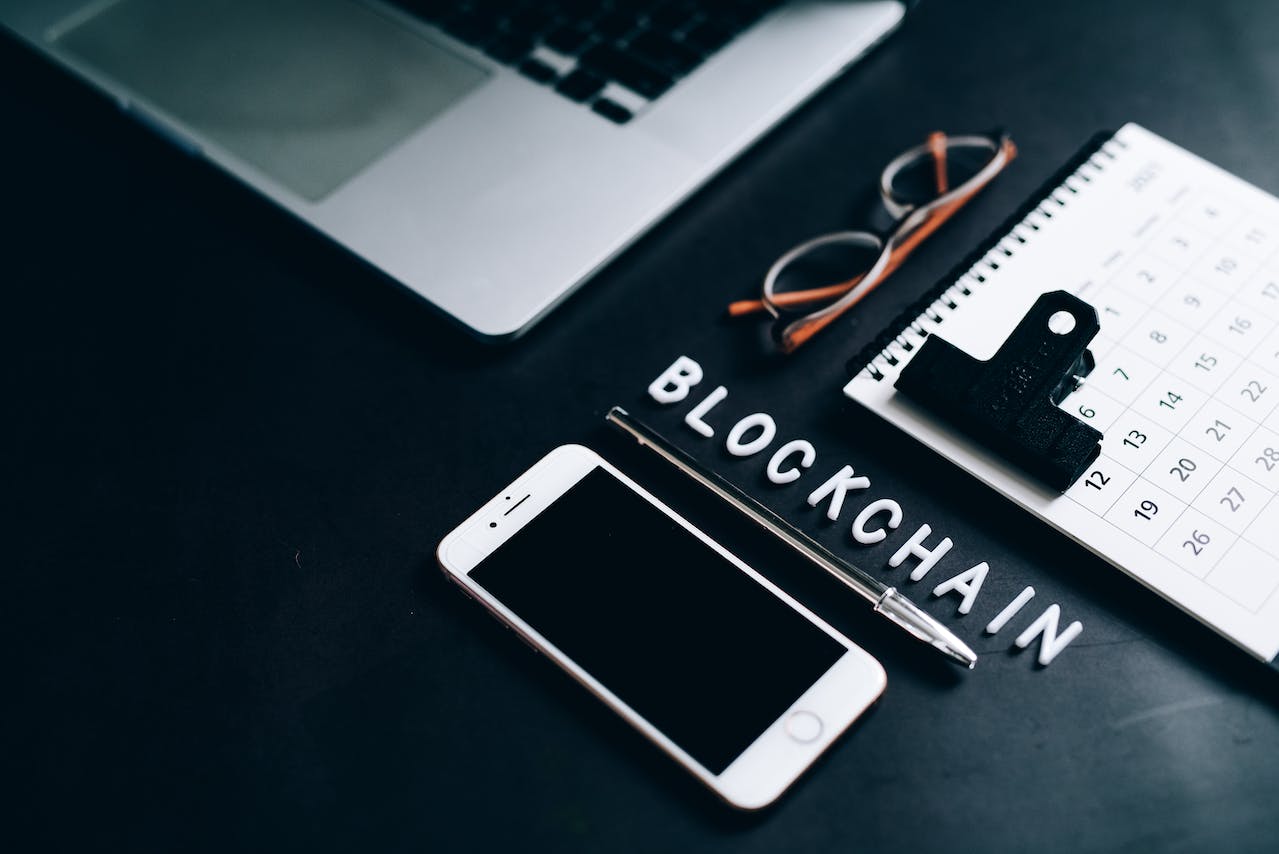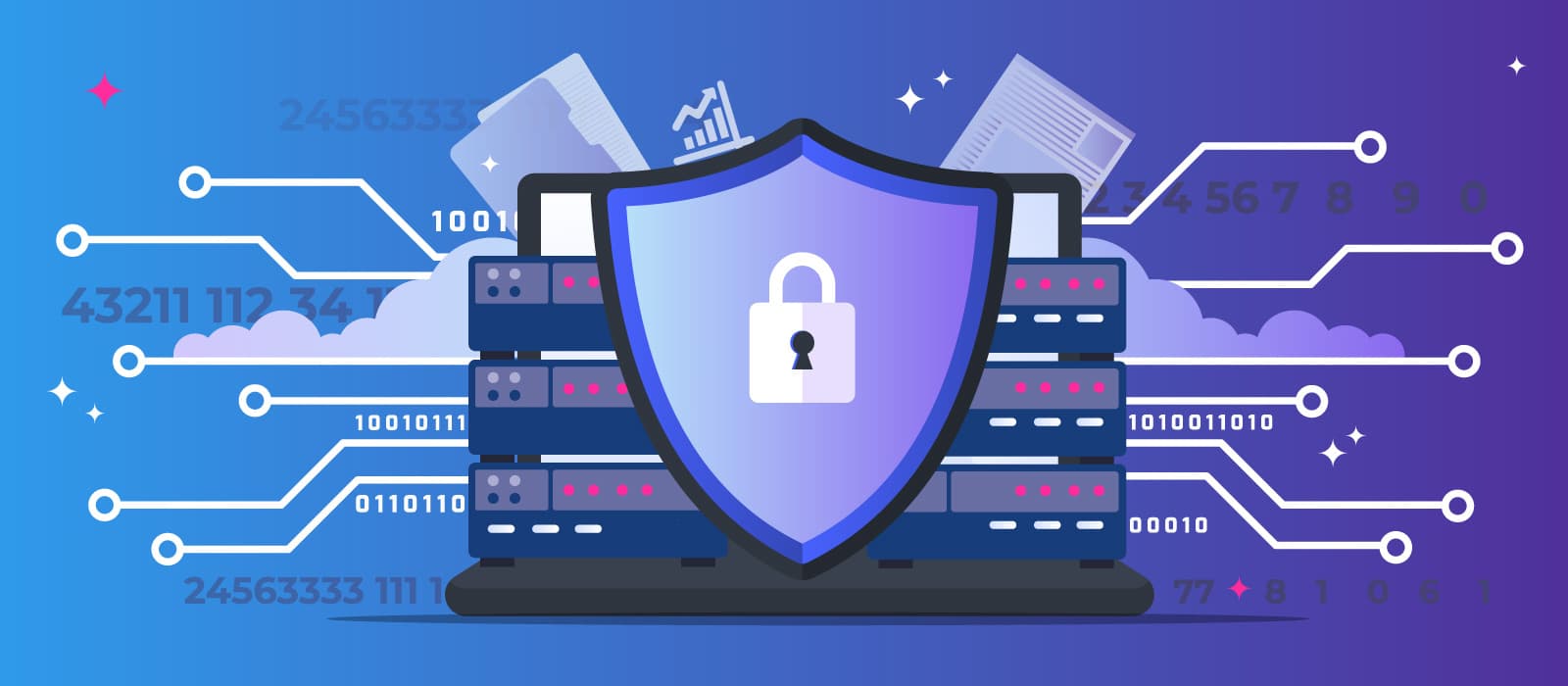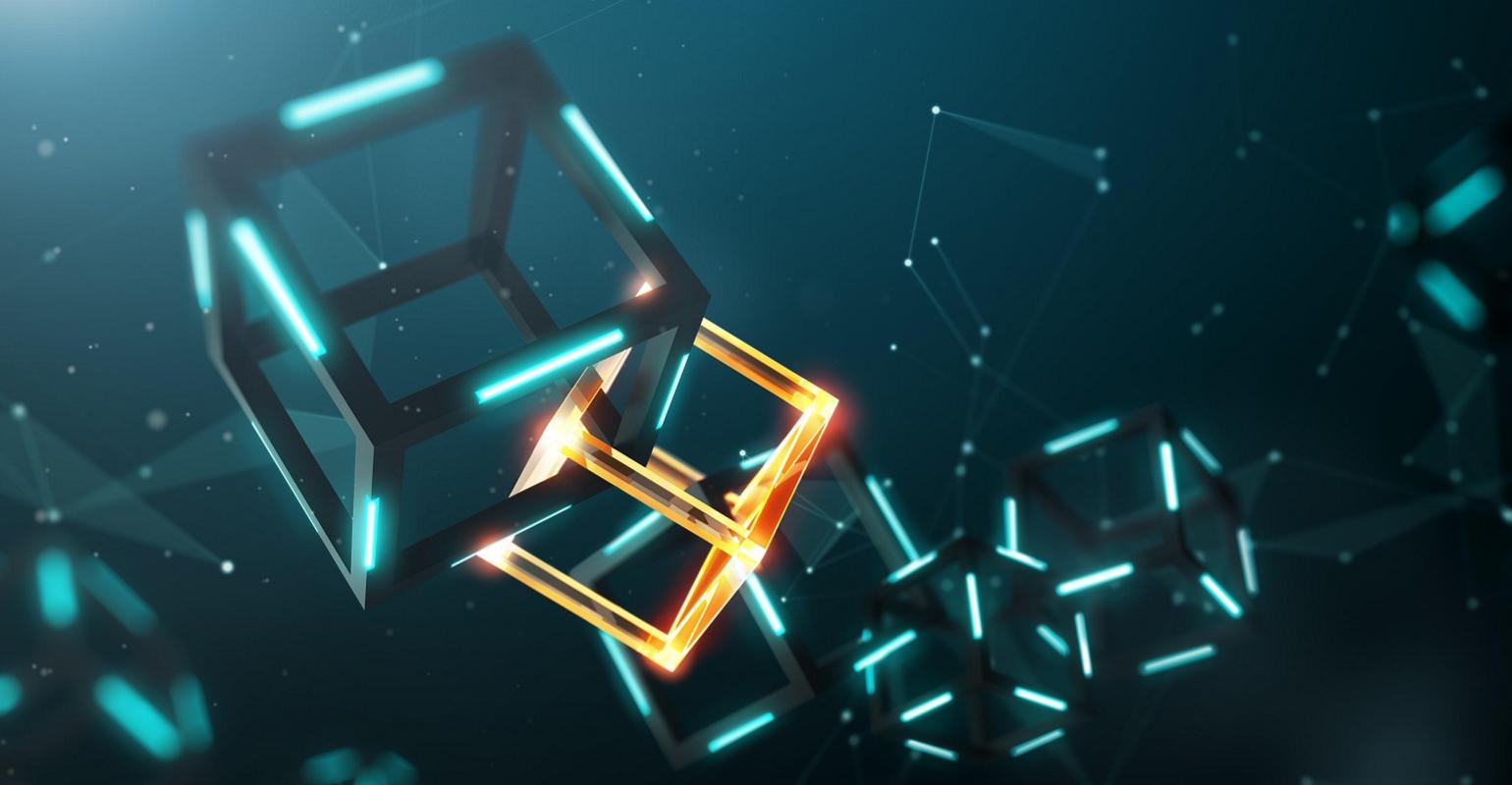Blockchain For Digital Identity - How It Work In The Real World
The popularity of blockchain for digital identity solutions is on the rise due to its secure and economical approach to digital identity management. With these solutions, users can securely store their ID information and credentials in a decentralized identity wallet app. The blockchain facilitates instant verification of this data, eliminating the need to contact the issuer.
Author:James PierceReviewer:Camilo WoodFeb 23, 2024764 Shares50.9K Views

When someone logs in to a website or app and is given limited access to data, technology, or services, this is called identity management, also known as identity and access management (IAM). There are many situations where IAM is useful, such as when a person logs into a website for personal reasons or when an employee uses technology at work.
Identity management systems that are older and less secure have caused many problems around the world, such as data breaches, large-scale hacks, and the sharing of private information about people without their knowledge.
As a result, there are more rules about how personal data is collected, stored, used, and shared. So let’s dive in to learn more about Blockchain for digital identity.
How Does Identity Work Today?
For Companies
A lot of the time, businesses store sensitive information about their users with less sensitive business data. As user privacy laws like GDPR become more common and the focus of the industry shifts to company IT responsibility, this creates new business risks.
Putting this data in secure data vaults makes it less useful for making products better and getting a full picture of what customers want.
For IoT Devices
About 7 billion things can connect to the internet. By 2025, this number will have grown to 22 billion, up from 10 billion now. Most IoT technologies don't have the right identity and access control tools yet because the industry is still very new. This is similar to how the early Internet was made up of only trusted institutions.
Things and sensors linked to the Internet of Things (IoT) need to be able to tell the difference between sensors, monitors, and devices. They also need to be able to control who can access sensitive and non-sensitive data safely.
For Individuals
Identity is a key part of a society and business that works. We can build strong societies and world markets if we have a good way to identify ourselves and our things. A person, place, or thing's identity is made up of the claims that are made about them.
The first and last name, date of birth, country, and some kind of national identifier for a person, like a passport number, social security number (SSN), driver's license number, etc. These pieces of information come from centralized bodies (like governments) and are kept in centralized databases (like central government computers).
Blockchain-Based D-ID Solutions
That's why D-ID is a great place for blockchain technology to make things better. Many of the biggest problems with D-ID can be fixed by building better systems with blockchains. This will also open up new uses for D-ID.
A blockchain-based D-ID system would have three main features: users would be able to make money off of the information they create and see how it is being used; D-ID information would be safe and easy to share; and users would be able to see how their information is being used.
There are many different ways to reach these goals, including getting rid of all off-chain names. These different methods use blockchain in different ways.
Deco
Chainlink's DECO oracle technology, developed by researcher Fan Zhang and others, is one blockchain-based D-ID system. Ari Juels is the Chief Scientist of Chainlink Labs.
There may be changes in how data is stored with new D-ID storage options, but a lot of data is still kept in trusted databases. Many people and organizations, especially governments and big businesses, may feel safer leaving their data with a high-security caretaker.
Bloom
Bloom is another project that uses blockchain technology to improve D-ID. Bloom is a decentralized identity protocol that lets users claim, control, and selectively share their financial information while still owning the whole thing.
Bloom works by getting data from users, making sure each user is who they say they are, and then writing that data to the blockchain as an encrypted hash. This lets information about users be kept on a public record or source of truth while still keeping it private.
One of Bloom's main areas of interest is financial information, and this tool is very helpful for that. In a recent blog post, Bloom explained how Chainlink oracles help connect credit scores to DeFi protocols.
Unstoppable Domains
Unstoppable Domain is a decentralized blockchain-based system for registering and hosting Internet domain names as Ethereum blockchain-based ERC721 tokens that can't be traded for cash. Unstoppable Domains just released a new feature that uses Chainlink oracles to connect Twitter users to specific domains.
This makes it easy to find and prove a user's public address by looking at their social media account. For a better UI/UX experience, users can also send payments straight to the domains instead of Ethereum addresses, which can be hard to understand.
Decentr
Decentr is a project that wants to make credit reports available on the web. They call it a "Personal Data Value" (PDV). The PDV for each user could come from a mix of their social media activity, on-chain activity like how many assets they own and how many loans they've paid back in the past, and real-world data like KYC/AML information.
As talked about in Decentr's blog post, Chainlink oracles can send this information to DeFi protocols on any blockchain. Users with high PDV values might be able to get loans with less security or even no collateral at all.
Blockchain-Based Identity Management Startups
Solulab - Pioneering Secure Digital Identities
SoluLab is the first step on our path to Blockchain-based identity management. SoluLab is leading the way in changing how we think about and protect our digital identities with its cutting-edge solutions. They are one of the best options on the market because they care about security, openness, and user control.
Blockid - Pioneering Digital Identity Solutions
There's a good reason why BlockID is second on our list. They are at the forefront of coming up with new ways to handle digital identities. Their method is based on making digital identities that are safe and can't be changed. They are setting a high standard for the business.
Secure Key - Reinventing Identity Verification
Identity verification is going through a big change, thanks to SecureKey. With their cutting-edge technology, the process is now faster and more reliable than ever, so people can be sure that they can show who they are.
Sovrin - Empowering Individuals With Self-Sovereign Identity
The self-sovereign identity platform from Sovrin is all about giving people power over their data. This makes things safer and more private at the same time.
Civic - Your Digital Identity, Your Control
Civic stands out because it provides an easy-to-use platform for people to handle and control their digital identities. People who use it do have power.
Spring Role - Verified Professional Profiles
Spring Role is all about making professional accounts that are checked out, which builds trust in the job market. Their platform is changing the way companies look for employees.
Evernym - Trust Anchored In Verifiable Credentials
Evernym's focus on identities that can be checked builds trust. This trust is very important for making sure that digital identities are real, which is very important in today's linked world.
Selfkey - Empowering Digital Identity Ownership
SelfKey gives people the tools they need to own, control, and handle their digital identities. They put safety and control of users first, which are important issues in this digital age.
Ontology - Bridging Real And Digital Worlds
The cutting-edge solutions from Ontology connect real and digital identities. This smooth merging makes trust and security better.
Jolocom - A Self-Sovereign Identity Framework
This framework from Jolocom lets people have control over their digital identities the way they should. Being able to choose your name changes everything.
Effectiveness Of Blockchain For Digital Identity
As technologies for protecting digital IDs have improved, they have opened up a lot of job opportunities. Two examples are robotic process automation and machine learning.
When used in centralized digital identity management systems, however, new methods end up being more expensive and less useful.
Security
One of the most important things for the future growth of blockchain digital identity companies is security. Blockchain has parts that keep data safe in a way that can't be changed and is private.
It also has the added benefit of keeping digital identity information safe through cryptography. Because of this, blockchain can help make sure that the digital identity is safe and easy to track.
Privacy
The next big benefit of blockchain-based digital identities is privacy. This is important because regulators are causing a lot of debate about how to keep people's personal and private data safe.
The strength of blockchain security and the ease of using digital signatures make "Privacy and Design" work well. On top of that, digital signatures that are attached to all deals can help protect them from being changed.
Integrity
A digital identity system based on blockchain would make it possible to keep track of each person's name across all network nodes. It doesn't matter how the data is spread out across peer-to-peer networks because it is always checked for authenticity and updates.
Trust
The benefits of digital identity systems built on blockchain also stress improvements in trust that seem likely. Blockchain-based systems store information about communications in a shared ledger, and consensus processes help make sure that data is correct across many nodes.
One more good thing about decentralization is that it can help with digital identities, especially when national names are used by many agencies.
Simplicity
One of the best things about digital identity blockchain options is that they are easy to use. It should be possible for blockchain platforms to make the processes for each stakeholder easier.
Blockchain-based identity management systems can make it clear what the identities of people who issue identities, own identities, and verify identities are.
The Blockchain Advantage Of Digital Identity
Because it is autonomous and can't be changed, blockchain technology has a lot of potential to change the way digital identities are managed.
Blockchain improves security, privacy, and control over personal data by creating a public record that can't be changed. Look at some cases of how blockchain is already making a difference in the real world.
Self-Sovereign Identity
The idea of self-sovereign identity (SSI) lets people have full control over their online identities. SSI uses the autonomous nature of blockchain to let people safely store things related to their identity in a digital wallet, like biometric data or educational credentials.
They can choose which service providers or officials to share this information with, protecting privacy and lowering their reliance on central hubs.
Aid Distribution And Refugee Management
Blockchain-based solutions have shown a lot of promise for making it easier to distribute aid and handle refugees. By using distributed ledgers, businesses can create clear systems that make sure resources are shared efficiently and legally.
For example, humanitarian groups can use blockchain to safely store and verify the names of refugees, making sure that everyone has equal access to healthcare, education, and jobs.
Improving Financial Inclusion
There are still a lot of people in Africa who can't easily use banks, especially those who don't have official IDs. Blockchain technology could help close this gap by providing decentralized identification solutions that make it possible for everyone to have access to money.
People can build trust and get access to banking services, loans, and other financial tools by using digital names based on the blockchain.
What Are The Various Use Cases Of The Blockchain Identity System?
Applying For A Loan
Let's say you need to get a loan or start a new bank account. In the past, you had to send in several pieces of identification to go through the whole human verification process, which took weeks to finish.
However, an identity based on blockchain could speed things up by sharing important data more quickly. The cost and work might go down because users might not have to keep track of multiple IDs.
Immigration
One must not only have a passport but also bring a certain set of papers for security checks and to get through the airport.
A person can use a blockchain-based universal identity to do everything, from buying a ticket to going through security checks, getting on a plane, and moving to a new country. If someone has a decentralized identity, they wouldn't have to go through a lot of difficult security checks and other steps.
E-Commerce Checkout
People who want to buy something online have to fill out some details, like their name, email address, phone number, address, and so on.
When they sign up for an e-commerce site, they have to go through this whole process all over again. This takes a lot of time and effort. So, using the same ID number to sign up for different e-commerce sites can save people time and effort.
Previous Employment Verification
Right now, there isn't a set way to always do a background check on workers. In the global job market, it is important to check the information that is put on resumes, cover letters, and reference letters.
With the user's approval, the blockchain ecosystem can be used to directly ask for information on resumes to be checked for accuracy.
Frequently Asked Questions
Can Blockchain Be Used To Verify Identity?
Yes, blockchain can verify identity through decentralized and tamper-proof digital records.
How Can Blockchain Solve Identity Theft?
Blockchain can combat identity theft by providing secure, immutable records that eliminate the need for centralized databases vulnerable to hacking.
What Is Identity Control In Blockchain?
Identity control in blockchain refers to mechanisms ensuring users have control over their own digital identities, enhancing privacy and security.
What Is A Digital Blockchain?
A digital blockchain is a distributed ledger technology that securely records transactions or data digitally across a network of computers, ensuring transparency and integrity.
Conclusion
Blockchain has a huge amount of promise for digital identity, especially when it comes to Africa and refugees. We can get around the problems with standard identity systems and give people self-sovereign identities by using blockchain technology.
Blockchain-based solutions are changing how we handle digital identities, which is building trust, belonging, and respect. They are being used in everything from giving aid to getting people access to financial services. I hope that you have understood blockchain for digital identity.
Jump to

James Pierce
Author

Camilo Wood
Reviewer
Latest Articles
Popular Articles




